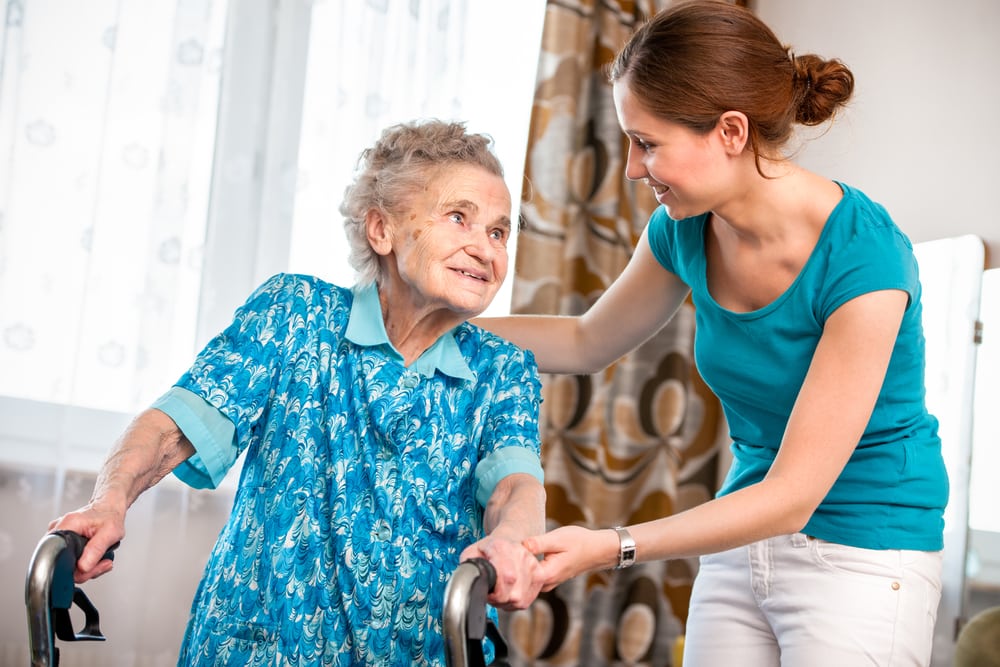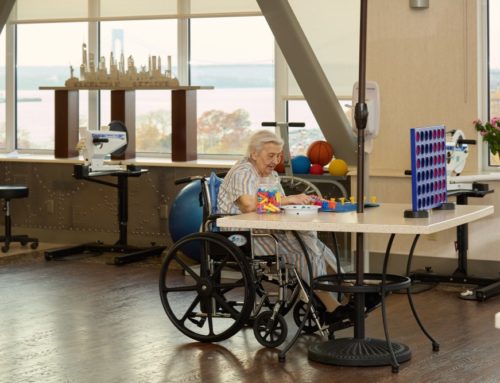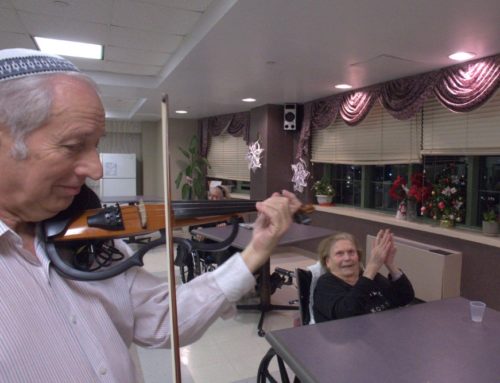Dementia is an incurable brain disease that gets progressively worse, so caregivers need to know how to handle dementia behaviors. These behaviors vary from one individual to the next and depend on the stage of the disease. There is, therefore, no single correct approach for caregivers to manage dementia behaviors. Instead, caregivers will need to adapt their responses and match them to the situation in hand.
Understanding Dementia Behaviors
Those suffering from dementia usually have memory loss and find it difficult to communicate. They find it harder and harder to look after themselves and cope with basic tasks like eating and dressing. Bathing or going to the toilet may be problematic. They may be incontinent, suffer from paranoia or wander off and not know where they are. Furthermore, dementia can cause aggressive outbursts, mood swings and upsetting behavior.

Caregivers need to understand the disease and not try and confront or correct what might appear to be bad behavior. Instead, the most important thing is to listen with your ears, eyes and heart. The aim should be to try to tune into what the patient or loved one is feeling. If you can handle dementia behaviors sensitively in this way you will be better placed to help them.
Patience, understanding and compassion are key attributes for any caregiver wanting to handle dementia behaviors. Maintaining a sense of humor, having a flexible approach, speaking slowly and being kind are key.
It’s also important to check with a doctor if there are any sudden changes in behavior. These may be triggered by medication which could be changed.
Agitation
Many dementia sufferers get restless, irritable, or engage in verbal or physical aggression. Such agitation or disorientation often gets worse at the end of the day. Reduce the noise level and/or the number of people in the room; reassure the patient. Try walks, a gentle touch, reading or soothing music. Distract the patient with a snack and/or acknowledge their distress. Increase daytime activities, particularly physical exercise, and discourage napping.
Paranoia
People with brain disorders such as Alzheimer’s disease, a common form of dementia, may suffer from paranoia. They may become suspicious or accusatory. They can accuse you of stealing their money, or many other things. Sometimes a hug or a gentle touch can be more effective than kind words. Don’t try to argue with them or say they are mistaken. Explain to family members and others that such behavior is normal in people with dementia.
Repetitive Speech Or Actions
Dementia sufferers often repeat words or phrases or actions over and over again. This behavior can be triggered by anxiety, boredom or fear. Reassure the patient or loved one. Use touch and/or kind words. Try distractions such as a game or get them to “help” you in some way.
Wandering
It’s important to handle dementia behaviors involving aimless walking about or wanderings. This may be because of the side-effects of drugs they are taking, boredom, thirst or hunger. Maybe it means they need to use the toilet.
Organize regular exercise to minimize this behavior. Put away the confused person’s coat, purse, or glasses: he or she may not venture out without them. Lock external doors or consider installing a monitoring system.
Hallucinations & Verbal Outbursts
Dementia sufferers may have hallucinations or delusions and believe things that are obviously not true. Cursing, threatening and shouting are probably expressions of anger and are part and parcel of the illness.
Calmly state your perception of the situation, but don’t try and convince the patient they are wrong. Stay calm and reassuring and validate your loved one’s feelings. Redirecting the patient’s attention may help, but if the symptoms are very bad to discuss the situation with the doctor. He or she may be able to provide medication.
Haym Salomon Home for Nursing & Rehabilitation in Brooklyn, NY, has lots of experience in how to handle dementia behaviors. For more information, email office@haymsalomonhome.com or Phone (718) 373-1700.
This content comprises informative and educational resources only and can not be considered as a substitute for professional health or medical guidance. Reliance on any information provided in this article is solely at your own risk. If you have any inquiries or apprehensions about your medical condition or health goals, talk with a licensed physician or healthcare provider.






Leave A Comment